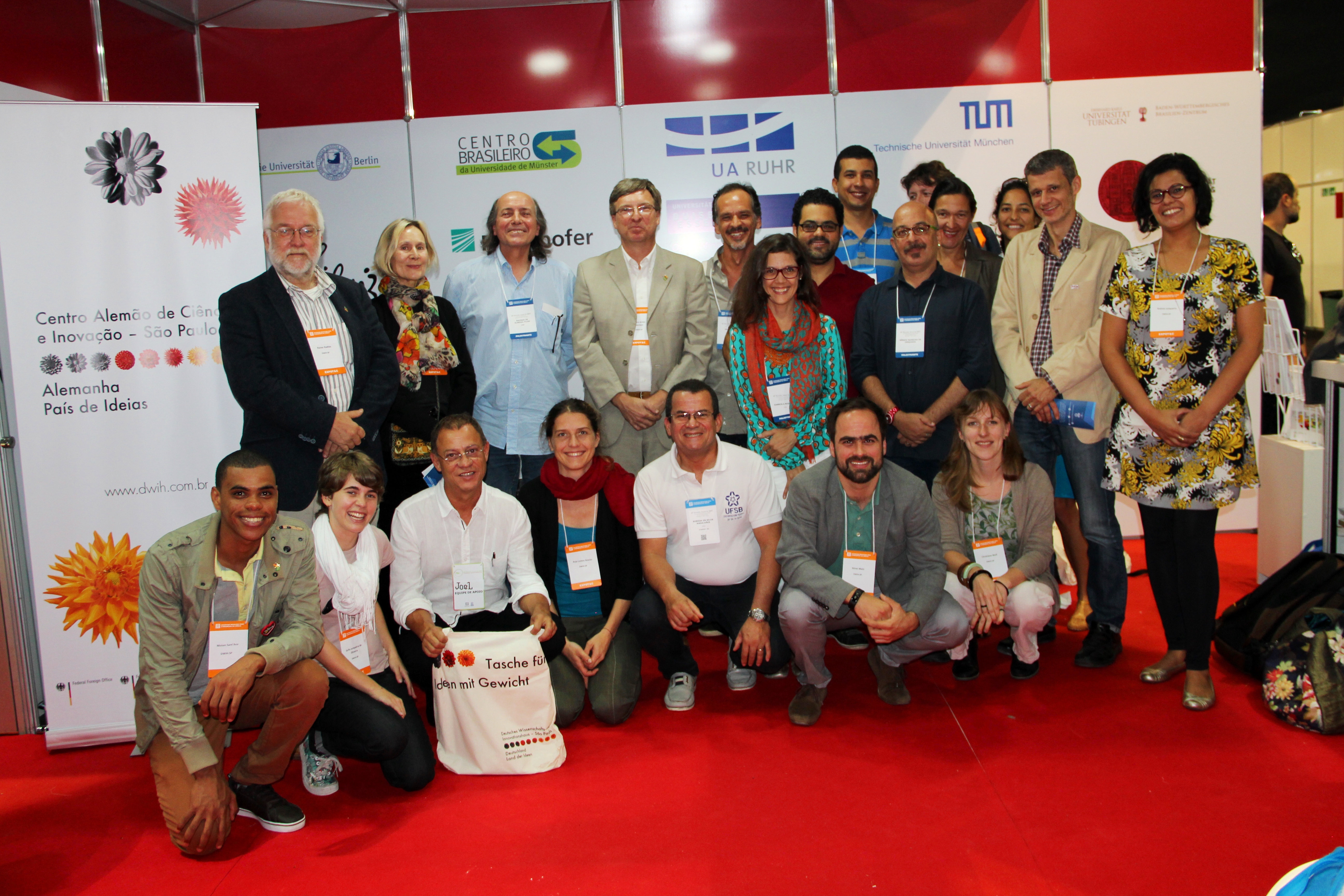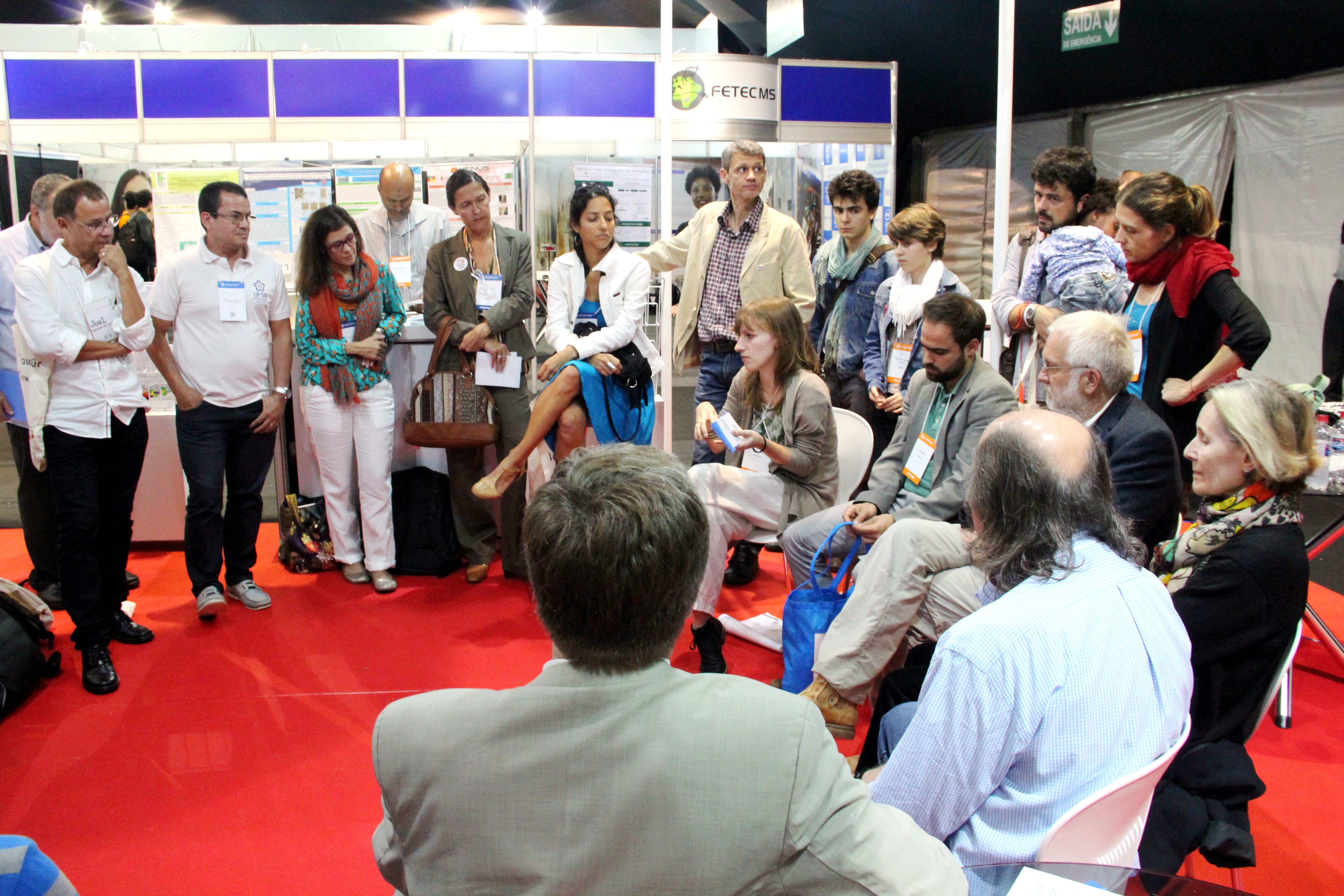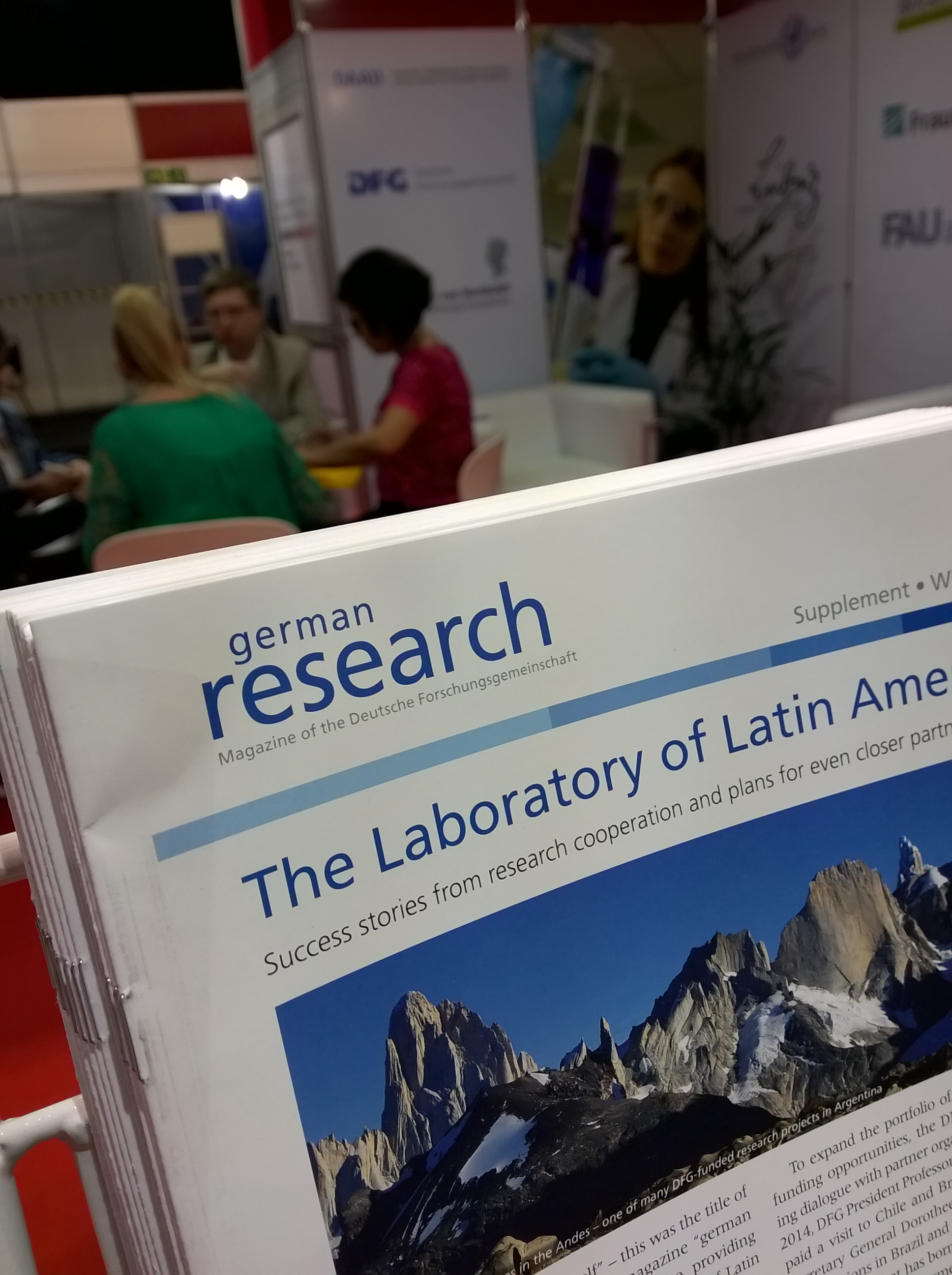The DFG Participates in the 68th Annual Meeting of the SBPC in Porto Seguro
The German delegation at the 68th annual meeting of the SBPC in Porto Seguro
© DWIH-SP
(25.07.16) The DFG sent delegates to the 68th annual meeting of the SBPC (the Brazilian Society for the Advancement of Science) in Porto Seguro in the south of the Brazilian state of Bahia. This year the host university was the Universidade Federal do Sul da Bahia (UFSB), a public federal university founded in 2014.
The SBPC is the umbrella organisation for more than 100 associated scientific societies. It acts as both an advisory body for issues relating to science policy and as an important information channel for science communication in Brazil. In addition to a number of smaller events, it hosts its annual meeting at various locations in Brazil once a year. This year more than 6,000 participants attended more than 150 talks, round table discussions, meetings and workshops – many of which dealt with the event’s motto of “sustainability, technologies and social integration” – in Porto Seguro between 3 and 9 July 2016. The biggest event in the Brazilian scientific community drew a mixed audience from all regions of the country, mainly consisting of researchers, teaching staff and students as well as executives from R&D departments of companies and from public research funding organisations.
In addition to the official theme of the annual meeting, the dominant topics were the merger of the Ministry of Science, Technology and Innovation (MCTI) with the Ministry of Communications in May and budget cuts for science and research at federal level over the past few months. The SBPC is calling for the budget for 2017 to be raised back up to the 2013 level to the tune of BRL 9.4 billion. The total budget for 2016 is expected to be BRL 4.5 billion.
The German House for Research and Innovation - São Paulo (DWIH-SP) organised a trade fair stand and talks in the lecture programme for the German involvement in the annual meeting. In addition to the plenary address entitled: “Sustainability, Important for and Dependent on Human Societies? Perspective from Planet Earth” by Professor Dr. Ulrich Anton Glasmacher from Heidelberg University, there was a round table discussion on inclusion strategies at universities with Prof. Dr. Naomar Almeida Filho, Rector of the UFSB, Prof. Dr. Ute Klammer, former Vice-Rector for Diversity Management at the University of Duisburg-Essen, Prof. Dr. Marcelo Knobel from the University of Campinas (Unicamp) and Prof. Dr. Gregor Lang-Wojtasik from the University of Education Weingarten.
Further round table discussions dealt with topics including the strategic orientation of Brazilian higher education policies, the new legal framework for higher levels of participation in research funding by the private sector and quality assurance and profile enhancement in the Brazilian university landscape. The latter was debated in a panel discussion by Luiz Roberto Liza Curi, Counsellor on the National Council of Education (CNE); Abilio Baeta Neves, President of CAPES, a research funding agency within the Ministry of Education; Hernan Chaimovich Guralnik, President of CNPq, a research funding agency within the Ministry of Education; and Luiz Davidovich, President of the Brazilian Academy of Sciences (ABC). It was said that the challenge in Brazil was mainly in coping with the very heterogeneous situation in the country. When developing plans to fund excellence and for internationalisation, it is important not to lose track of the efforts that have been made with regional diversification and the inclusion of socially deprived, low-income students from the public secondary education sector. According to the speakers, although international experiences such as the Excellence Initiative or Excellence Strategy in Germany can be incorporated into the discussion, measures would always need to be adapted to the real-life situations at Brazilian universities. This is due to the comparatively low number of international students in Brazil and complicated processes in recruiting and appointing university staff previously posing obstacles on the path to turning Brazil into an international competitor.
The next annual meeting will be held at the Universidade Federal de Minas Gerais (UFMG) in Belo Horizonte in 2017 and will celebrate the university’s 90th anniversary.


